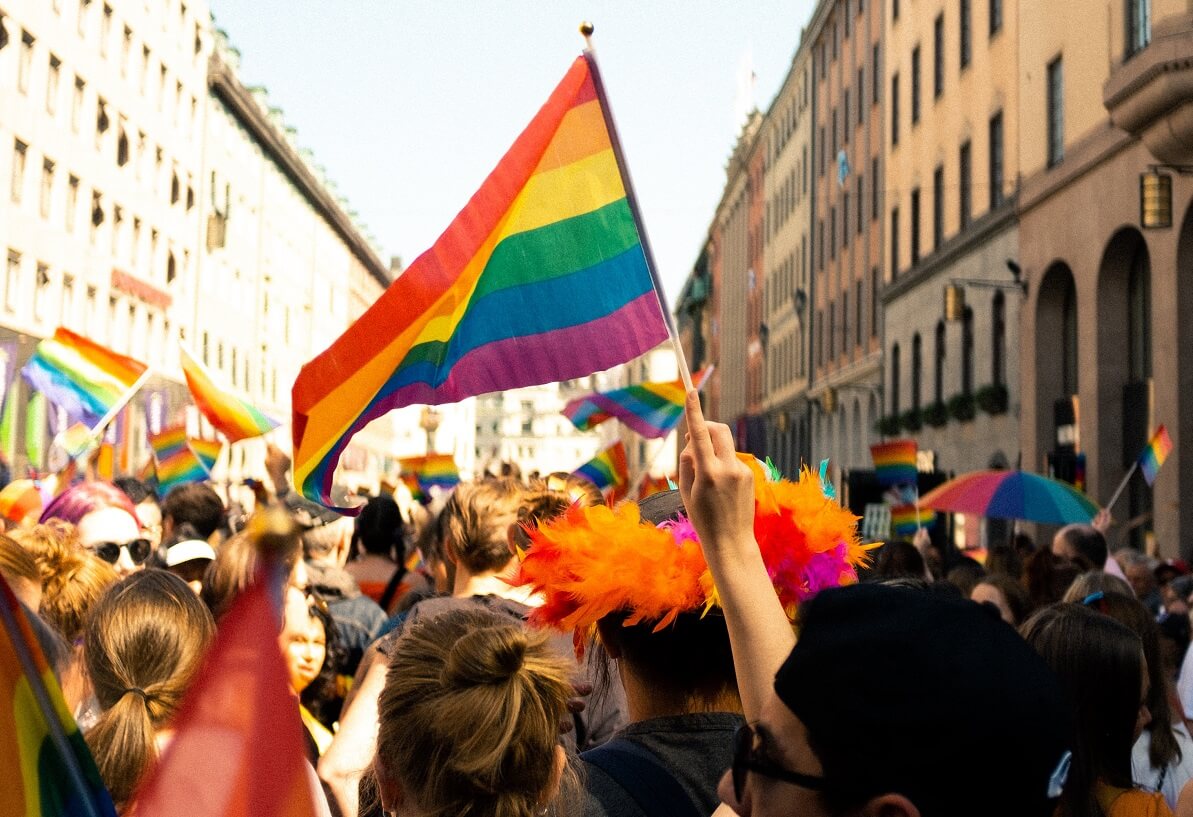It’s end of June. Pride Month.
As has become the norm in recent years, brand logos are awash with rainbows, retailers produce ‘love is love’ merchandise and blare Lady Gaga from their shop fronts.
And it’s not just retailers at it. Large brands as far reaching as the Bank of America, Unilever, LinkedIn and Walmart are ripping up the brand guidelines and taking the multi-coloured plunge to demonstrate support for their LGBTQ+ colleagues, customers and the community at large.
Ostensibly that’s a great thing to do. Despite the general acceptance of LGBTQ+ people in the UK following equality legislation of the past decades, the community at large, and particularly more marginalised groups within it, still face daily discrimination. To see the biggest brands in the world seemingly standing up and declaring themselves ‘with you’ is a heartening experience. But, and this is a big but, when you start to delve beneath the rainbow surface, beneath the corporate sponsored pride parades and limited edition this and that, things begin to unravel. Because one thing all brands must know is that if you lift your head above the parapet and deliver a purposeful message you better be able to back it up. Otherwise any intention to include can be read as an attempt to capitalise on the marginalisation of groups and making money from misfortune has never been in style. Perhaps the most infamous incident this year has been the pushback against Disney for their initial silence on the ‘Don’t Say Gay’ bill passed by the Florida State Senate.
Other brands, however, Walmart, Deloitte and NBC Universal notable among them, haven’t come off entirely unscathed themselves. Disney have since clarified their position with CEO Bob Chapek explaining that Disney leaders were opposed to the bill “from the outset but […] chose not to take a public position on it because we thought we could be more effective working behind-the-scenes.” For many LGBTQ+ people the explanation was too little too late and more than a few social media users have questioned a brand willing to publicly turn its logo rainbow but not publicly call out discrimination.
It certainly seems that in the case of speaking out for LGBTQ+ rights, if brands can’t truly back up what they’re saying you may be better saying nothing at all.
83% of millennial and generation Z consumers indicated in 5WPR’s 2020 Consumer Report that a brand’s ‘values and how they align with their own’ are an important factor in choosing whether to purchase. However 72% also said that an inauthentic attempt to project these values would actively put them off. It’s something we’ve seen time and again with so-called greenwashing companies standing up to fight the good fight without a watertight sustainability strategy of their own; and for the next and current generation of consumers it’s downright off putting.
So potential rainbow-washers beware; for the next generation of consumers and decision makers authenticity is key and support for the LGBTQ+ community takes a little more than branded merch and a rainbow logo.
